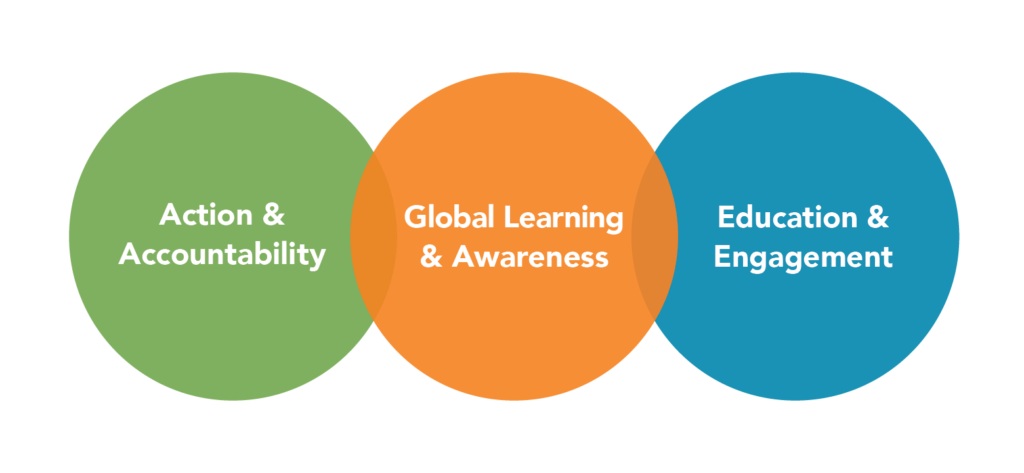
International Education for All
IIE’s commitment to creating a more peaceful world through international educational exchange now and throughout our history is a critical part of our effort to engage thoughtfully with all of our internal and external constituents around the world and reaffirms our deep commitment to these principles. While IIE has worked for over a century to build a more peaceful, prosperous world, we recognize that there is much work yet to do. We support programs with a universal commitment to multiculturalism and international understanding and cooperation.

In 2020, we took deliberate steps to formalize practices that foster accountability and purpose both within our organization and in our external engagements. This effort resulted in a comprehensive strategy centered on three core areas: Action & Accountability, Global Learning & Awareness, and Education & Engagement. By focusing on these priorities, we aim to achieve measurable progress across five key domains: Talent, Work, Governance, Opportunity, and Training. Over the past year, we have made significant advancements, laying a strong foundation for continued growth and progress.
Actions We’ve Taken:
- Established principles of integrity and collaboration as foundational pillars in our five-year strategic plan. Continued annual workplace training, ensuring all team members and Board members actively participate. Supported the launch of voluntarily created employee affinity groups, providing a platform of support and a feedback mechanism to help drive positive change within the organization.
- Provided virtual roundtables, forums, and specialized training to foster an environment where all team members feel respected, valued, and included.
- Created recruitment tools and training programs for hiring managers and candidates to enhance hiring practices. Partnered with organizations aligned with our values to address gaps in access and representation within international education. Launched and coordinated the National Academy for International Education, galvanizing a group of distinguished thinkers to shape and advance international higher education
- Launched the Center for International Opportunities to deepen our commitment to fairness and ensure our values guide current and future programs that support the experience of international exchange and education for everyone.
Partnerships:
IIE’s efforts to engage our internal and external environment through the convening of thought leaders and practitioners worldwide are integral to our core mission.
- IIE partnered with Dickinson College to launch a virtual workshop series that combines the strengths of both institutions. This collaboration leverages shared expertise and global networks to develop new frameworks for international education that emphasize cross-cultural understanding and fairness. IIE and Dickinson hosted workshops exploring the connections between intercultural learning and global education while addressing practical strategies for professionals to implement changes on their campuses and within their organizations. These virtual and in-person events have brought together 300+ participants from 90+ institutions across multiple countries.
- An expanded series of workshops has continued over the past years bringing together educators, researchers, and students across different countries, disciplines and cultures to develop collaborative approaches for fostering trust and building bridges in international education.